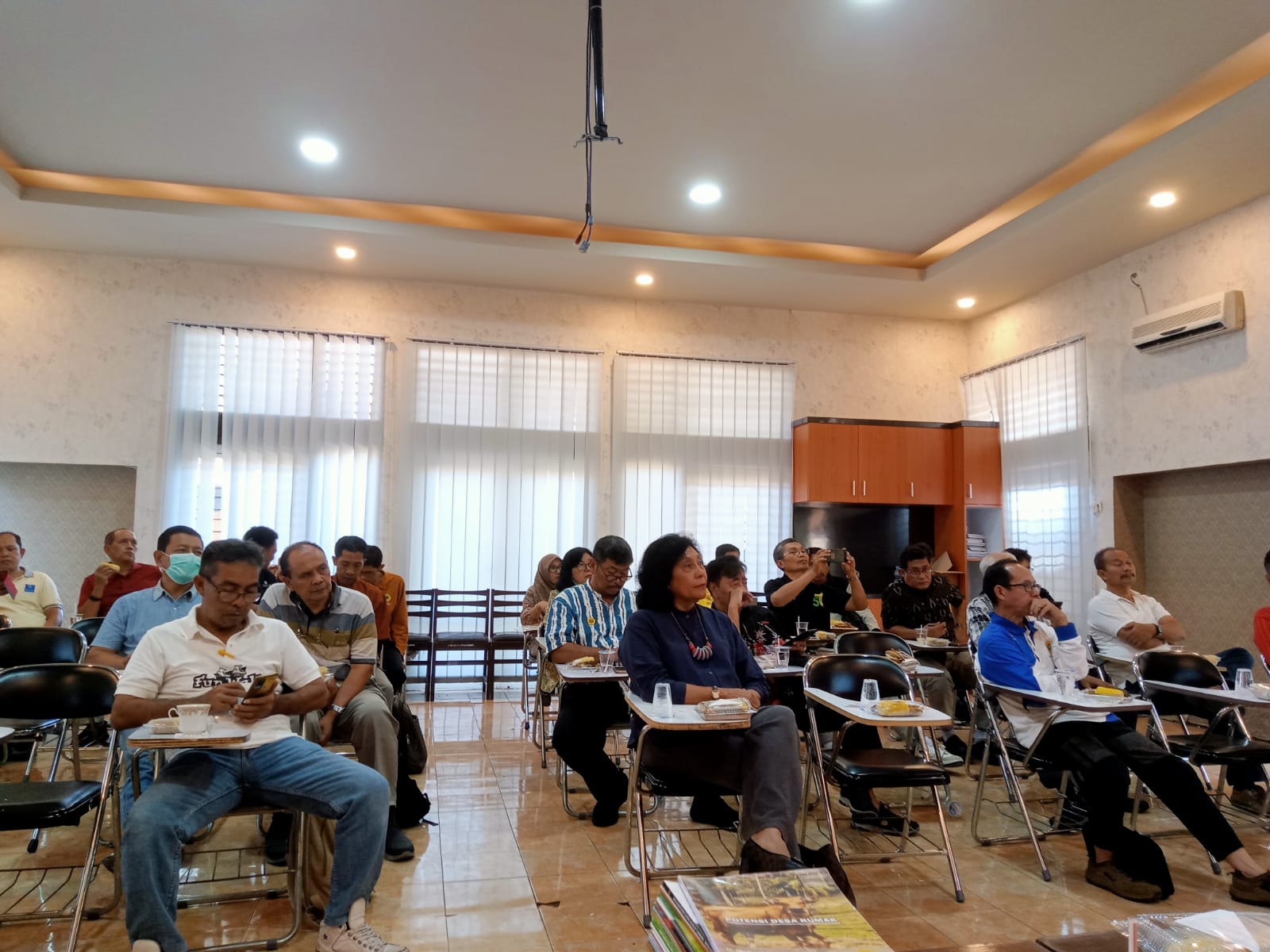Equalization of DPL Unram KKN-PMD Perception: Strategic Steps for Village Empowerment

Mataram, University of Mataram – The Institute for Research and Community Service of the University of Mataram (LPPM Unram) held an activity to equalize the perception of Field Supervisors (DPL) of the Real Work Study (KKN) for Village Community Empowerment (PMD) for the July-August 2024 period. This activity was held in the Main Conference Room of LPPM Unram on Friday (31/5).
On this occasion, the Secretary of LPPM, Prof. Dr. Ir. I Gusti Putu Muliarta Aryana, MP, was present; accompanied by the Head of KKN and Cooperation Center, Dr. Ir. Misbahuddin, ST, MT, IPU; Secretary of KKN Service, Dr. Ni Wayan Sri Suliartini, SP, MP; and 131 DPLs in 131 villages. The distribution of DPL and KKN locations consist of 25 DPL in 25 villages in West Lombok Regency; 20 DPL in 20 villages in North Lombok Regency; 51 DPL in 51 villages in East Lombok Regency; 22 DPL in 22 villages in Central Lombok Regency; 8 DPL in 8 villages in Bima City; and 5 DPL in 5 villages in West Sumbawa Regency.
Starting this activity, Prof. Dr. Ir. I Gusti Putu Muliarta Aryana, MP. as Secretary of LPPM in his speech reported, “The implementation of KKN this period was attended by 1,287 students in 131 villages from 6 regencies / cities in West Nusa Tenggara Province.”
Furthermore, he emphasized that, “The knowledge possessed by DPL and the insights of KKN-PMD participants are expected to be able to capture problems as input in adding study material after returning to campus until the intellectual maturation process occurs naturally.”
Through the intervention of the KKN-PMD program, it is expected to accelerate village development to improve the quality of human resources, including the creation of a climate that encourages the development of village community initiatives and self-reliance. The rural population is a potential human resource that has a dual role, as an object of development and at the same time as a subject of development. As an object of development, part of the rural population in terms of quality still needs to be empowered. Conversely, as the subject of development, the rural population plays a very important role as a determining force.
On the same occasion, the Head of the Center for KKN and Cooperation Dr. Misbahuddin explained, “In this period based on the results of the group survey in the village there is data on the distribution of groups based on the theme of the survey results of students in the village with a total of 991 students (101 Groups), Tourism Village 10 Students (1 Group), Blue Economy 187 Students (19 Groups), Green Economy 60 Students (6 Groups), Health Independence 10 Students (1 Group), Advanced & Sustainable Agriculture 29 Students (3 Groups).”
“With a total distribution of 1,287 students in 131 villages with 6 themes, we hope that these 131 DPLs can continue development in the village through the University of Mataram KKN-PMD student program that has been running in the previous period. Not only that, the results and outcomes of KKN students are expected to be able to contribute to the community (partner villages) and institutions in the form of increasing KPIs. Therefore, a developing village means that the village has independence in developing itself (self-development). In the context of village development, building a village means that the country stands behind the village, or tut wuri handayani, “said Dr. Misbahuddin.
Therefore, in order to accelerate the pace of village development, collaboration and synergy with various parties are needed, both internal (from within the village) and external (from outside the village). One of them is through cooperation with universities in this case Unram. Unram as a science laboratory in NTB is expected to be able to implement all knowledge and translate every problem as a solution in village development through the KKN-PMD Program. There is a good synergy between the local government to the village government and academics in the hope of symbiotic mutualism that runs.
This activity is intended to equalize the perception of KKN-PMD Field Supervisors, especially those related to the outputs produced by students. So as to increase knowledge and skills, especially those related to village development issues. Through this perception equalization, KKN-PMD Field Supervisors are expected to assist students in identifying and understanding social problems, education and learning problems, village social procedures, potential management problems, both natural and human resources, and finding alternative solutions with a social science approach.
